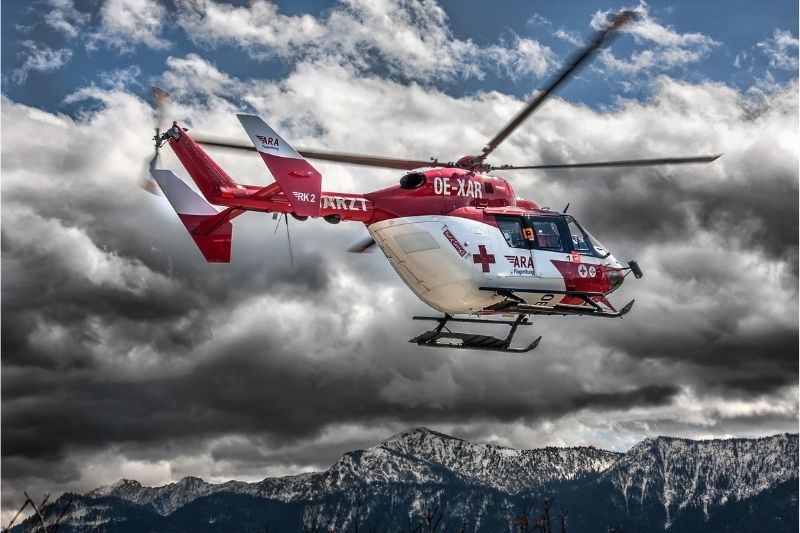No products in the cart.
What to Know About Emergency Medical Transport

When you find yourself in a medical emergency, it can be hard to keep calm and respond to the situation rationally. Shock, adrenaline, and all manner of other things will impact your mind’s ability to calmly evaluate the situation and react in an appropriate manner, which is why you want to know everything you can about these situations ahead of time so that you have the best possible chance of reacting properly.
What Kinds of Medical Transport are There?
Being clear and informative when you report a medical emergency is highly important because they will evaluate the information you give them to determine what kind of ambulance they need to dispatch to the situation.
Air Transport. One of the most effective types of long distance medical transport are air ambulances. This is because they can move far faster than most forms of transport and avoid any kind of traffic or other obstacles. As a result, they often provide the patients the best chance of getting to the hospital and medical attention in the least time possible. If you’re dealing with a critical medical situation, utilizing an air ambulance can significantly improve the chances of receiving timely and specialized care. On top of that, they are able to reach areas that other forms of transport would be incapable of reaching, meaning they could render aid, even if you were on top of a mountain.
Land Transport. While still undeniably fast, your regular ambulances must contend with the layout of roads and the traffic that comes with them, which means you are likely to be waiting far longer for medical support if a traditional ambulance is sent your way. However, these machines are operated by trained medical professionals, and the paramedics that will treat you within an ambulance could well have your emergency completely under control by the time you reach the hospital.
What Constitutes a Medical Emergency
An issue that is vital to address is that people are often unaware of what constitutes a medical emergency that you need to call an ambulance for. This can go one of two ways, either you don’t consider difficult situations enough of an emergency to call for medical aid, or you consider everything an emergency and request an ambulance far too regularly.
When to Call an Ambulance. Fortunately, there is a fairly easy rule of thumb for you to begin applying when it comes to medical emergencies. If you can get yourself, or the person in need of aid, to an emergency room without endangering yourself or others in the process, you should not be calling an ambulance. However, if you would be at risk of losing consciousness or anything else that might endanger you or the people around you, then you should contact an ambulance for medical aid.
How to Respond to a Medical Emergency. Now that you know how to tell whether or not you should call an ambulance, it is probably also important that you know exactly how to respond to a medical emergency should you encounter one. If you come across a medical emergency, the first thing you should do is assess the situation; if anyone is unconscious, you should see if you can wake them, whether they are breathing, and whether they are bleeding or injured. Once you have determined who is most in need of aid, you should contact an ambulance if necessary and give whatever aid you can without worsening their condition.















Leave a Reply